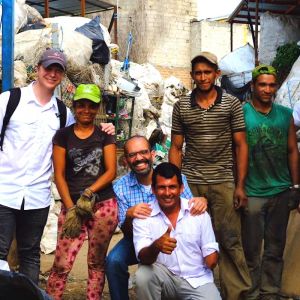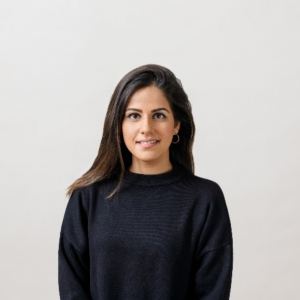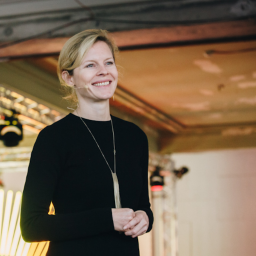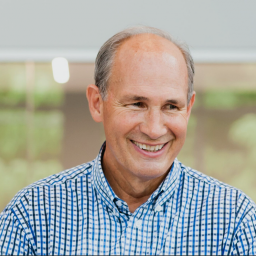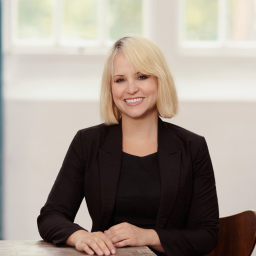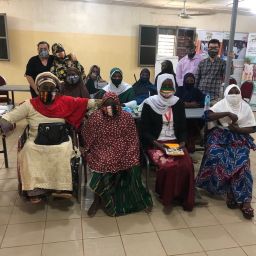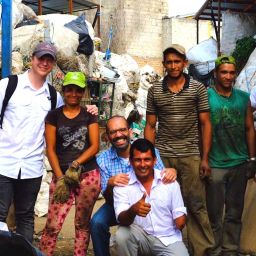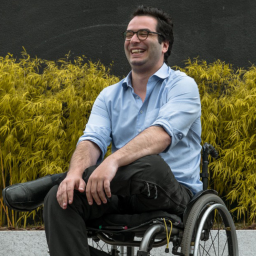How is social justice and the Circular Economy (CE) interconnected?
Every person is entitled to access to resources equitably, but that is currently not the case. The world’s resources are limited and we have to look for innovative ways to ensure that they are reused and recycled. A circular economy should be regenerative by design, and focus on both nature and people; one where wealth is equitably circulated and shared.
What has been your experience in terms of the social impact a circular organisation can have throughout its stakeholder chain?
The CE puts forward the concept of developing new business models that transform traditional linear economies of ‘take, make, dispose of’, into an alternative flow model – one that is circular and closed loop.
I would like to share a personal example from the work we do:
Mr. Kibuchi is a smallholder farmer whose land has been degraded by long-term dependence on cheap, synthetic fertilisers. After testing our product, his plot’s soil pH has been restored from 4.8 to 6.5. In response, he has seen his yield increase by around 27% and income increase by 50%. After two years, the extra income meant that he could send his two children to school and afford a second-hand tractor for his farm. In the next five years, we plan to reach 400,000 farmers like Mr. Kibuchi.
This example shows that circular economy companies, like Safi Organics, are bridging the gap of social injustice.
Your goal is to empower smallholder farmers in the rural areas, using circularity. Why is this important to you and what are the current gaps you see?
I grew up in a semi-arid area in rural Kenya witnessing firsthand the hunger challenges within my farming community. I’ve always had a dream to work hard and move to the urban centre to get a decent job, so I’d be able to help my family back home.
However, when I was at university I began to follow a new path, starting instead to focus waste management research in the rural areas. This led me to start Safi Organics, manufacturing carbon-negative fertilisers for smallholder farmers.
There have been numerous innovations within the circular economy, but there is still much more that needs to be done.
Capacity building programmes should be delivered at a grassroots level, especially training farmers on how they can embrace circular economy issues, i.e. waste management, climate change, and how they can actively play key roles within their own farms.
There is also a need for advocacy around crop insurance by farmers. We need to see more companies offering this service, in exchange for farmers delivering their farm waste to them or adopting ways to recycle waste in their farms. It will act as a motivation for the farmers to tap into this circular economy agenda.
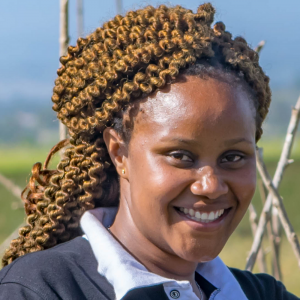
Joyce Kamande, Co-Founder, Safi Organics
What can companies within the CE space do to support advances in health systems, wellbeing and human rights?
There are multiple ways that companies can demonstrate corporate social responsibility, or support the rights of farmers:
- Capacity building programmes – farmers need knowledge and skills to adapt to system changes, and better understand the different ways to uphold the circular economy
- Farmer involvement (bottom-up approach) – In most cases, farmers are left out of the decision-making process. If the rules and policies are constituted for the farmers, their voices should be heard and represented at the topmost decision-making forums. Participation and local democracy are two ways in which society can influence decisions making, and bring together all stakeholders to create coherent policies
- Technical support – While many farmer groups conduct activities and businesses which they run together, their main challenge is access to efficient modern technology, good warehouses, lack of solar/electricity etc. If there is increased support for these farming cooperatives, the farmers themselves will become more empowered.
- Offer extra services to farmers – While every farmer deserves high-quality farm inputs, this is not always the case. Often, they lack the right information and rely on local agrovets which only focus on sales. If we educate farmers on the better services/products which are available to them, we would have higher quality food in the market.
What can we do to create more opportunities for disadvantaged groups to participate in the transition from linear to circular systems?
For farmers to participate in circular systems, we need to invest in organisations that are offering capacity-building programmes, i.e. training on climate change adaptation and mitigation, offering high-quality inputs and agronomical advice.
___
TO JOIN THE ‘Regenerate’ COMMUNITY of leaders championing the circular economy globally, APPLY TO BECOME A MEMBER OF MEANINGFUL BUSINESS HERE


